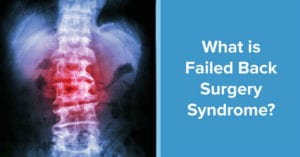
Tips for Keeping Your Spine Surgery Recovery Healthy
After you’ve undergone spine surgery, you want to make your path to recovery smooth, painless and short. Preparing yourself with information and expectations will allow you to plan for after your surgery. Before going into surgery, you should already have your home ready, so you won’t have to do much during your recovery. At NJ Spine & Orthopedic, we treat people, not patients. We want you to have a swift and effective recovery so you can get back to your everyday life. Here are some tips for how to make your recovery from spine surgery go as smoothly as possible. What to Do Before Spine Surgery Your home should be prepped with food, you should make advance sleeping arrangements and you should organize your house before you have your surgery. This way everything will be taken care of, so you can focus on your recovery when you return. Things to consider include: Food and Drink Accessibility. Stock your fridge and pantry with plenty of food and drinks. Ask your doctor if you need to follow a specific diet after your surgery. Stairs. Your doctor will probably inform you to avoid going up and down stairs for a while after your surgery. Bring whatever items you might want downstairs so you can access them. Sleeping Arrangements. If you can’t go upstairs, prepare a bedroom for yourself on the first floor. Put everything you need and want to make it as comfortable as possible. Include books, magazines and television, so if you’re told to stay in bed for a few days, you’ll have entertainment within reach. Organization and Fall Prevention. Maneuvering through clear, well-lit spaces will take stress off your recovery. Remove clutter to avoid possible injury from tripping or falling. Remove or secure carpet corners that might trip you. Night-lights should be in hallways, so you always know where you’re stepping. What to Do After Spine Surgery After surgery, you’ll need to know how to care for your wound and understand your limitations. Your first two weeks will be crucial to setting a precedent for your recovery. Do these five things to help the recovery go well. Set Realistic Expectations Your body needs time and rest to heal. You will not be able to do any laborious, intense activities or resume working after surgery. Some surgeries take weeks to heal and others take months. Your surgeon will help you plan for the recovery process. Avoid Showering Until You Get the All-Clear Your wound will probably need to be kept dry for about a week unless your doctor tells you otherwise. When showering, it’s imperative that no water gets into the wound. Cover the wound with plastic wrap to keep water away. Someone should assist you the first time you shower after surgery. Practice Smart Wound Care and Inspection Your doctor will tell you when you can remove the bandage and how to wash it. For the first few days, you may need to keep your wound dry. You should be aware

